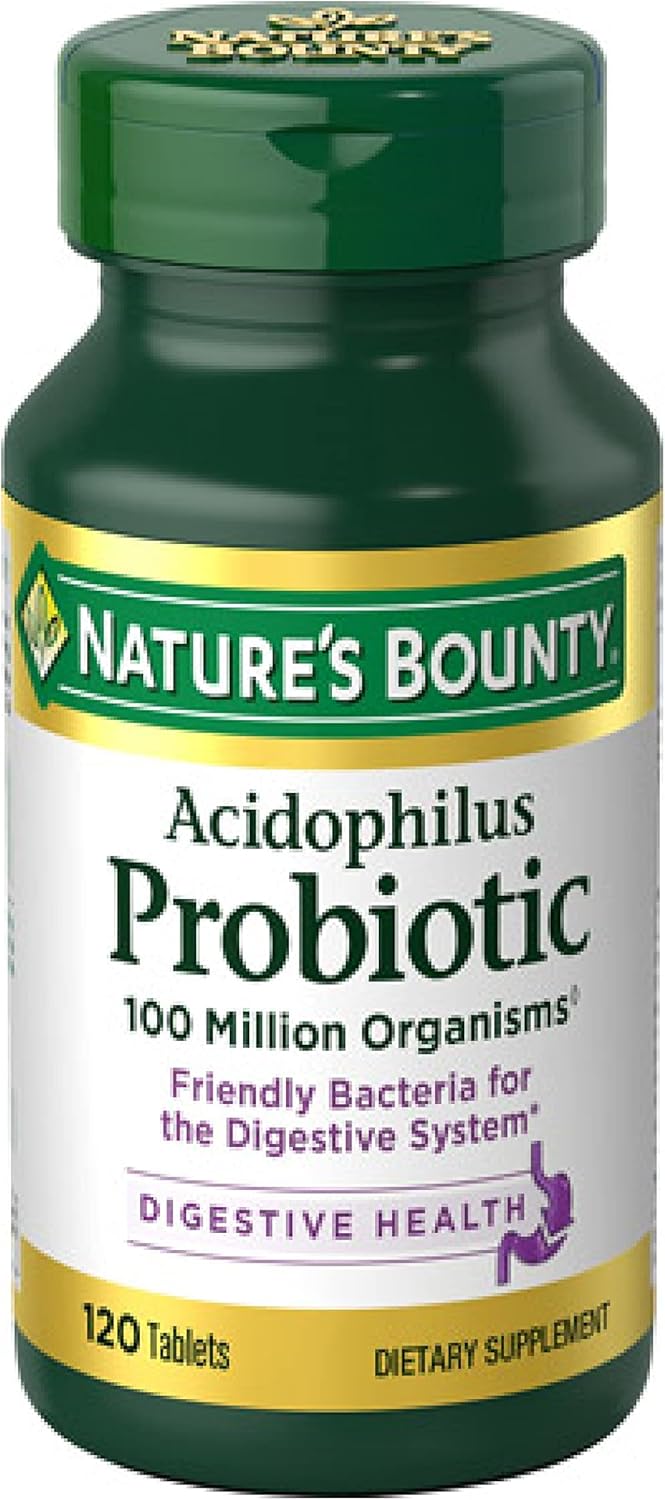





Price: $8.46 - $7.85
(as of Apr 08, 2025 11:49:50 UTC - Details)
What Is the Best Time to Take Probiotics? A Comprehensive Guide
Introduction
Probiotics have gained significant attention in recent years, touted for their potential health benefits. But when is the best time to take probiotics? This question is crucial for anyone looking to enhance their gut health. Understanding the optimal timing can make all the difference in maximizing the effectiveness of these beneficial bacteria. In this article, we’ll explore various aspects of probiotics, including their benefits, the best time to take them, and practical tips for incorporating them into your daily routine. By the end, you’ll have a clearer understanding of how to make the most out of your probiotic supplements.
Understanding Probiotics
What Are Probiotics?
Probiotics are live microorganisms that provide health benefits when consumed in adequate amounts. They are often referred to as "good" or "friendly" bacteria, as they help maintain the balance of microorganisms in your gut. This balance is essential for digestive health, immune function, and overall well-being.
Why Take Probiotics?
People take probiotics for various reasons, including improving digestive health, boosting the immune system, and even enhancing mental health. With so many benefits associated with probiotics, it's no wonder they're becoming a staple in many households.
Best Time to Take Probiotics
The Morning vs. Evening Debate
One of the most common questions is whether to take probiotics in the morning or at night. Many experts suggest that taking probiotics in the morning on an empty stomach may be the best option. This is because the stomach acid is lower when you first wake up, allowing more probiotics to reach the intestines. However, some people prefer taking them at night, believing it aids in digestion overnight. Ultimately, the best time may vary from person to person.
Consistency Is Key
Regardless of when you choose to take probiotics, consistency is crucial. Establishing a routine—whether it’s in the morning, with breakfast, or at bedtime—can help ensure you don’t forget to take them. Find a time that fits seamlessly into your lifestyle.
Factors to Consider
Type of Probiotic
Different types of probiotics may have specific recommendations for when to take them. For instance, some strains are more effective when taken with food, while others may be better absorbed on an empty stomach. Always check the label or consult with a healthcare professional to determine the best time for your specific probiotic.
Personal Health Goals
Your reason for taking probiotics can also influence the best time to take them. If you're taking them for digestive issues, you might benefit from taking them before meals. Conversely, if you're focusing on overall health or immune support, taking them at any time of the day may be effective.
Dietary Habits
Your eating habits can also dictate the best time to take probiotics. If you typically have a busy morning and skip breakfast, it might be better to take your probiotics with lunch or dinner. The key is to find a time that aligns with your daily routine.
Tips for Maximizing Probiotic Effectiveness
Pairing with Prebiotics
Consider taking probiotics alongside prebiotics. Prebiotics are types of fiber that feed the good bacteria in your gut. Combining the two can enhance the overall effectiveness of your gut health regimen.
Stay Hydrated
Drinking plenty of water is essential when taking probiotics. Hydration helps support digestion and can improve the absorption of probiotics in your gut.
Monitor Your Body’s Response
Pay attention to how your body reacts after taking probiotics. If you experience any discomfort or side effects, it might be worth adjusting the timing or consulting a healthcare professional.
Common Myths About Probiotics
"More is Better"
Many people believe that taking more probiotics will lead to better results. However, this is not necessarily true. It's essential to follow the recommended dosage and allow your body to adjust to the probiotics.
"All Probiotics Are the Same"
Another misconception is that all probiotics are created equal. Different strains serve different purposes, so it’s vital to choose the right one for your specific health needs.
Conclusion
In summary, the best time to take probiotics can vary based on individual preferences, health goals, and the type of probiotic you are using. Whether you choose to take them in the morning or evening, consistency is key to reaping the benefits of these beneficial bacteria. By understanding the factors influencing probiotic effectiveness and incorporating practical tips into your routine, you can support your gut health effectively. Remember, it’s all about finding what works best for you and sticking to it. Happy gut health journey!
PROVIDES FRIENDLY BACTERIA: Designed to provide friendly bacteria to both your digestive & immune systems, Nature’s Bounty Acidophilus Probiotic contains 100 million active Lactobacillus Acidophilus cultures that are guaranteed through expiration (1)
CONTAINS LACTOBACILLUS ACIDOPHILUS LA_14: This probiotic strain is naturally found within the intestinal tract
ONE-PER-DAY PROBIOTIC SUPPLEMENT: Simply take one tablet daily, preferably with a meal, to provide your gut with friendly bacteria (1)
GLUTEN, DAIRY, AND WHEAT FREE: Nature’s Bounty Acidophilus Probiotic is gluten free, dairy free, wheat free, and is suitable for vegetarians
UNSURPASSED QUALITY AND VALUE: Using the latest breakthroughs in nutritional science and the finest ingredients, Nature’s Bounty provides supplements of unsurpassed quality and value
